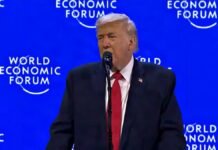
Key Points
- President Donald Trump announced plans to revoke Harvard University’s tax-exempt status, escalating a fierce battle between his administration and the Ivy League institution.
- The move follows a freeze on over $2.2 billion in federal funding to Harvard and demands for sweeping changes to university policies, including diversity, equity, and inclusion (DEI) programs.
- Trump accuses Harvard and other elite universities of promoting “radical left” ideologies and failing to address antisemitism, while Harvard calls the action unlawful and a threat to academic freedom.
- Experts warn that ending Harvard’s tax exemption could set a precedent for increased government oversight of private universities and further polarize the American education system.
- Harvard has filed a legal challenge against the administration, arguing that revoking its tax-exempt status would harm students, research, and innovation nationwide.
Washington D.C.: In a dramatic escalation of his administration’s campaign against elite American universities, President Donald Trump announced on May 2, 2025, that his government will revoke Harvard University’s tax-exempt status. The declaration, made via Trump’s Truth Social platform, marks a historic and controversial step that could reshape the landscape of higher education in the United States.
“We are going to be taking away Harvard’s Tax Exempt Status. It’s what they deserve!” Trump posted, signaling a direct challenge to the nation’s wealthiest and most prestigious university.
Background: A Long-Running Feud Intensifies
Since taking office in January, Trump has launched a broad offensive against top U.S. universities, freezing federal research funding, initiating investigations, revoking student visas, and demanding sweeping policy changes. The administration has accused Harvard and similar institutions of harboring antisemitic, anti-American, and “radical left” ideologies, and has called for the elimination of diversity, equity, and inclusion (DEI) initiatives.
The flashpoint came when Harvard refused to comply with a list of federal demands, including campus leadership changes, audits of diversity policies, bans on masks at protests, and stricter merit-based admissions. In response, the administration suspended over $2.2 billion in federal funding to Harvard, prompting the university to file a lawsuit seeking the release of the funds.
What Does Tax-Exempt Status Mean for Harvard?
As a nonprofit educational institution, Harvard enjoys exemption from most federal taxes, and donations to the university are tax-deductible for contributors. Losing this status would force Harvard to pay federal taxes, potentially reduce its massive endowment (over $50 billion), and likely lead to cuts in scholarships, medical research, and academic programs.
A Harvard spokesperson warned that such an unprecedented move would “jeopardize our capacity to fulfill our educational mission,” with ripple effects that could diminish financial aid, halt critical research, and stifle innovation.
Legal and Political Fallout
Experts note that the president cannot unilaterally revoke a university’s tax-exempt status; the Internal Revenue Service (IRS) must independently review and act on such cases. Federal law also prohibits direct presidential intervention in IRS decisions, making the practical implementation of Trump’s threat uncertain and likely to be challenged in court.
Harvard, supported by over 200 university leaders nationwide, argues that the administration’s actions are unlawful and represent an attack on academic independence. The university has vowed not to “surrender its independence or relinquish its constitutional rights”.
Wider Implications for U.S. Higher Education
This unprecedented confrontation could signal a new era of government scrutiny and intervention in private and independent educational institutions. Many in academia fear it will deepen ideological divisions and threaten the autonomy of universities across the country.
President Trump’s move to end Harvard’s tax-exempt status is the latest and most dramatic step in a broader campaign targeting elite U.S. universities. While the legal path forward remains uncertain, the clash is set to have far-reaching consequences for higher education, student support, and academic freedom in America.





















































